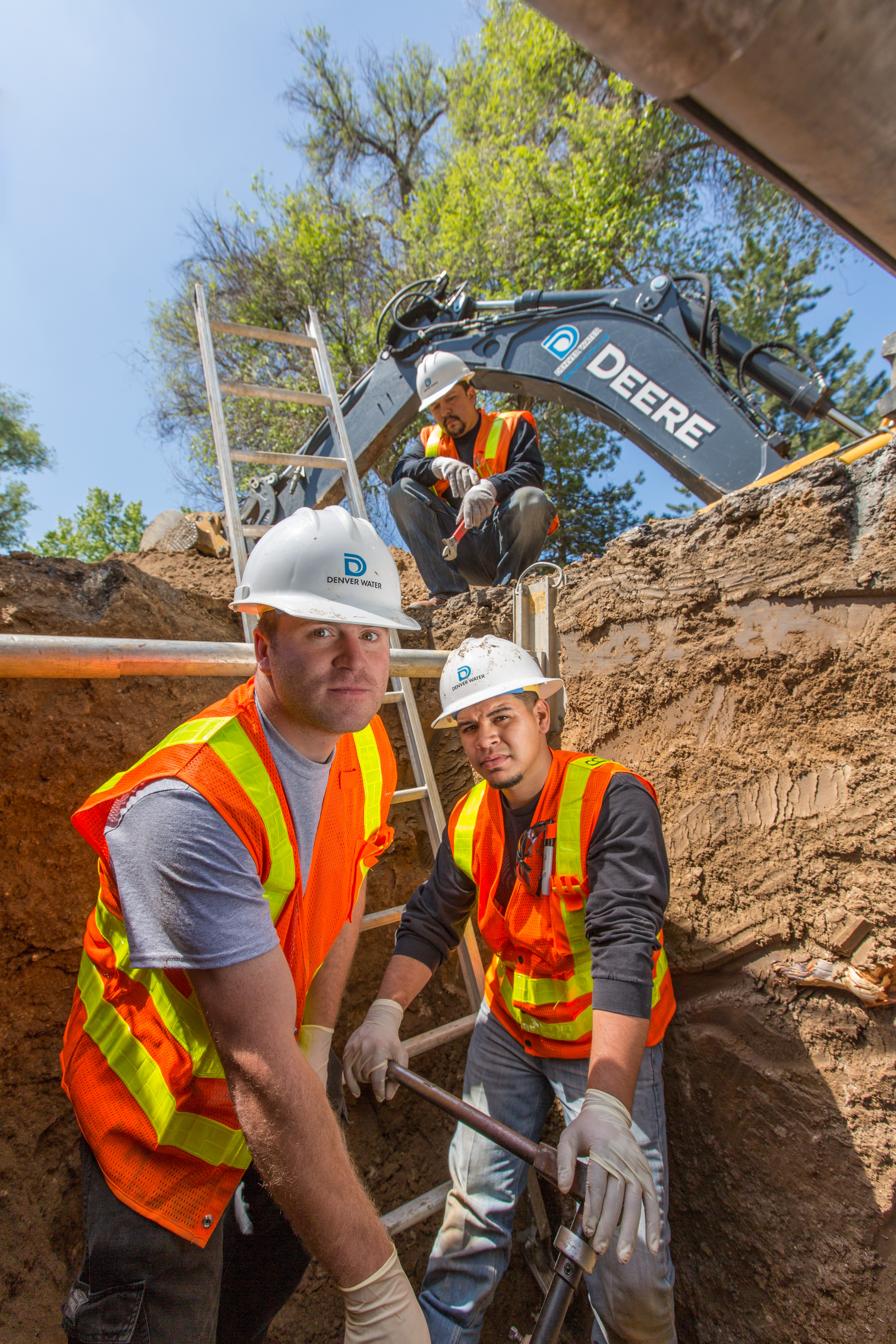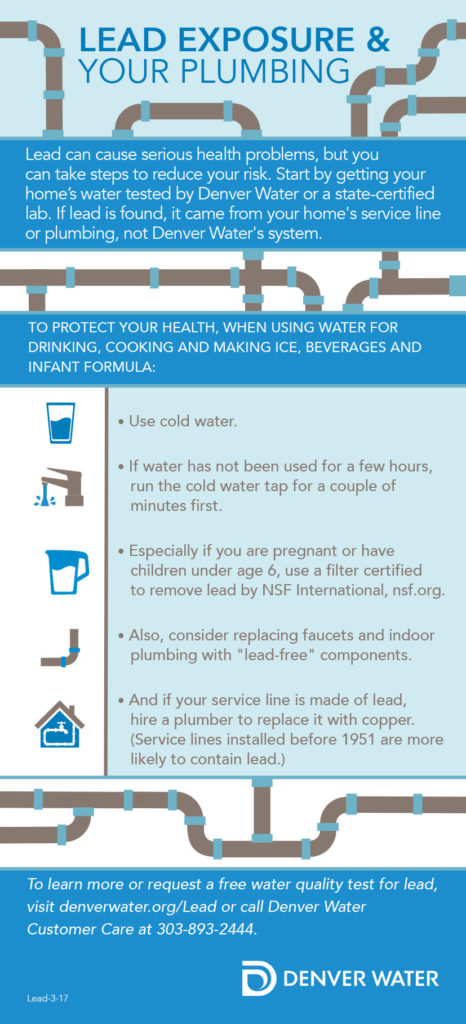
Quest for a lead-free Denver
For decades, the chemical Pb 82 on the periodic table has been outlawed from household paints, plumbing materials and gasoline.
These efforts have helped reduce lead exposure in America, but unfortunately, the residual affects linger in our communities, hidden in our homes and the environment.
“Educating the community and ultimately getting all lead service lines out of Denver is a top priority for Denver Water,” said Alexis Woodrow, coordinator for Denver Water’s lead reduction program.
In 1986, Congress enacted the lead ban in the Safe Drinking Water Act, which mandated that any plumbing connected to a public drinking water system must be lead-free.
But a ban on lead-based plumbing doesn’t mean the potential for exposure has been eliminated. The Flint water crisis really brought lead-based plumbing materials to the forefront of the discussion, according to Woodrow.
So, what is Denver Water doing?
Lead testing
Even though there is no lead in the water Denver Water supplies to our customers, Denver Water offers free lead tests and educational materials for customers.
Why? Because lead can still leach into water when it passes through a customer’s internal plumbing or lead service line — the pipe that brings water from Denver Water’s main in the street to your home.
“When it comes to water quality, we want all of our customers to be as proactive as possible so they can reduce their risk,” said Woodrow. “Being aware of what lies beneath allows property owners to take the proper precautions and remove the problem altogether.”
Check out, “Anytime is a good time to test for lead in your water” for tips to check your home plumbing and reduce your risk.
Schools
With younger children at the greatest risk for health problems from lead poisoning, Denver and other metro-area school districts have taken a proactive approach to locating and removing lead plumbing and service lines in their schools.
And, Denver Water has been there to help, testing more than 9,000 water samples for Denver Public Schools (and counting), and thousands more for other metro area schools in 2017.
Construction
Between proactive pipe replacement projects and responding to emergency leaks, Denver Water pipe crews digging in the street have a unique opportunity to see customers’ buried service lines and identify the material.
And when we find it, we get it out. Denver Water has developed a lead replacement program, and since 2016, Denver Water has ensured the replacement of roughly 1,200 service lines per year. “Delivering safe water is our first responsibility,” said Woodrow. “We are committed to taking the right steps to reduce the risk of lead leaching into water through customers’ plumbing.”


